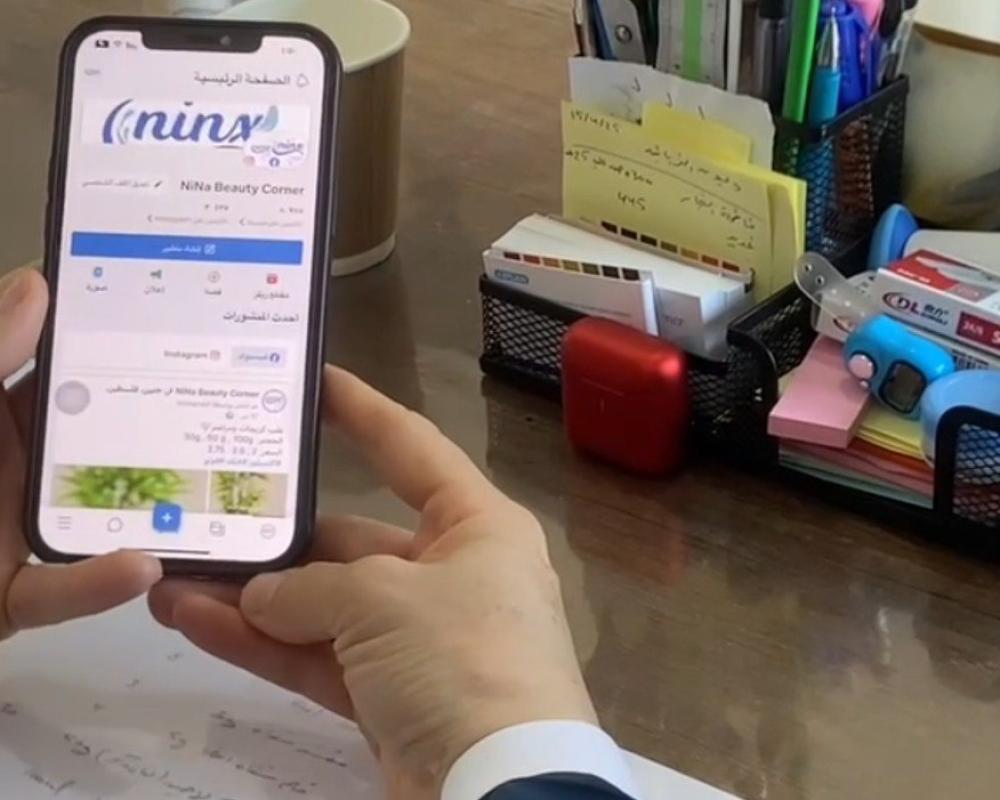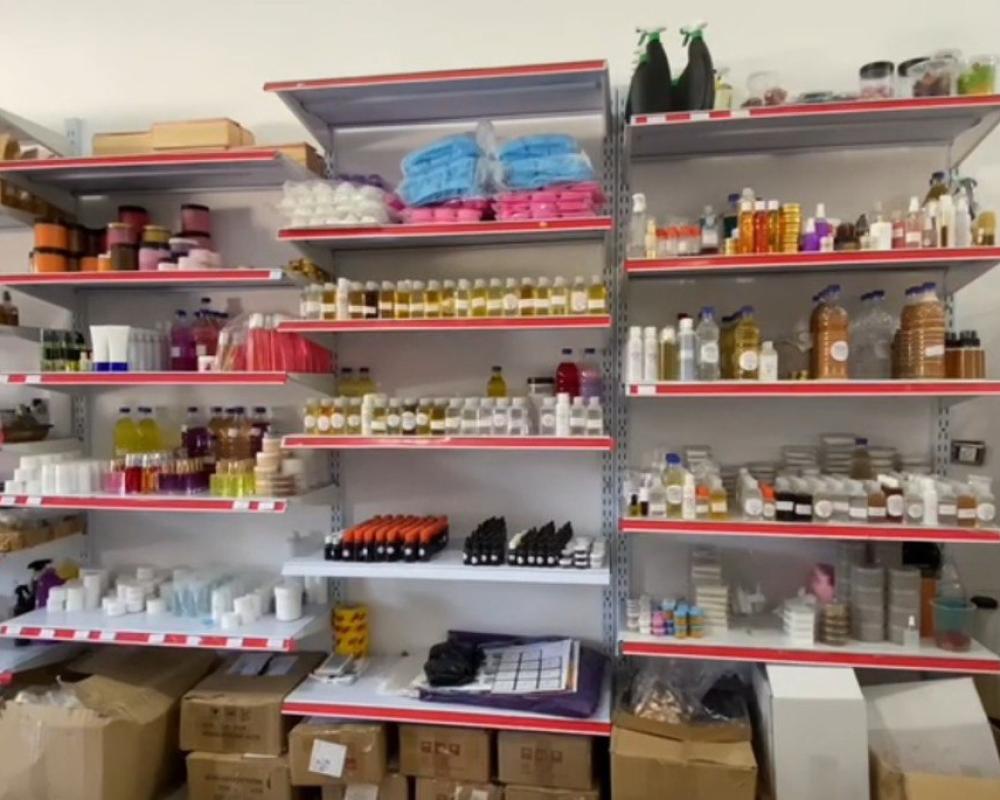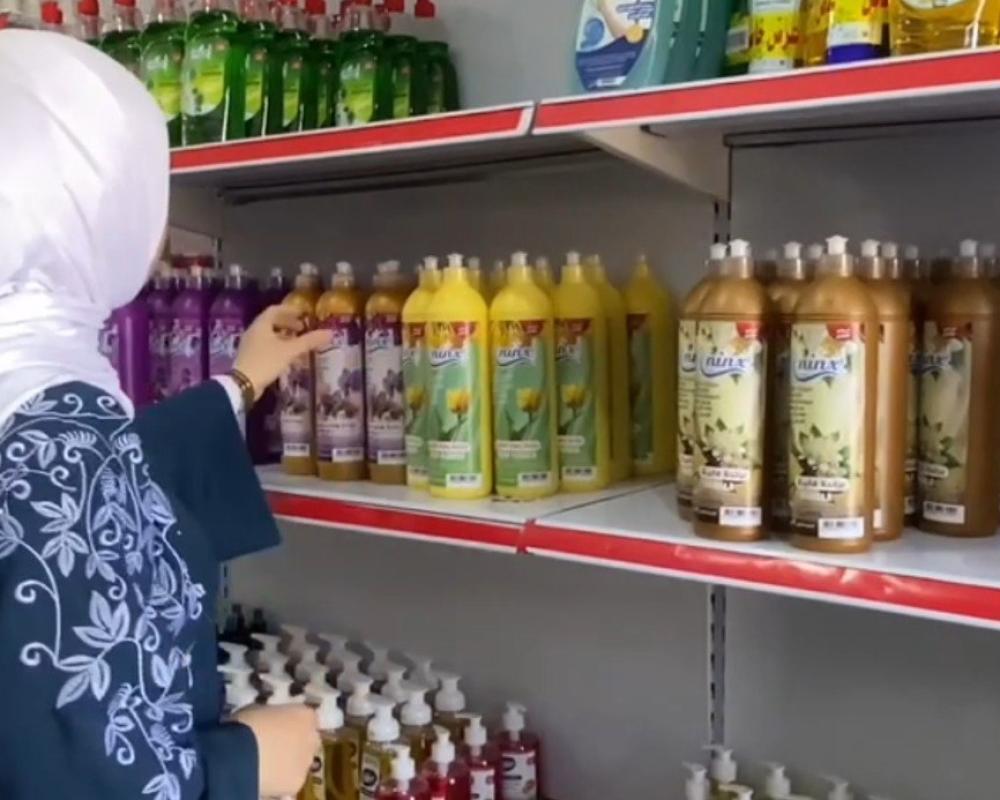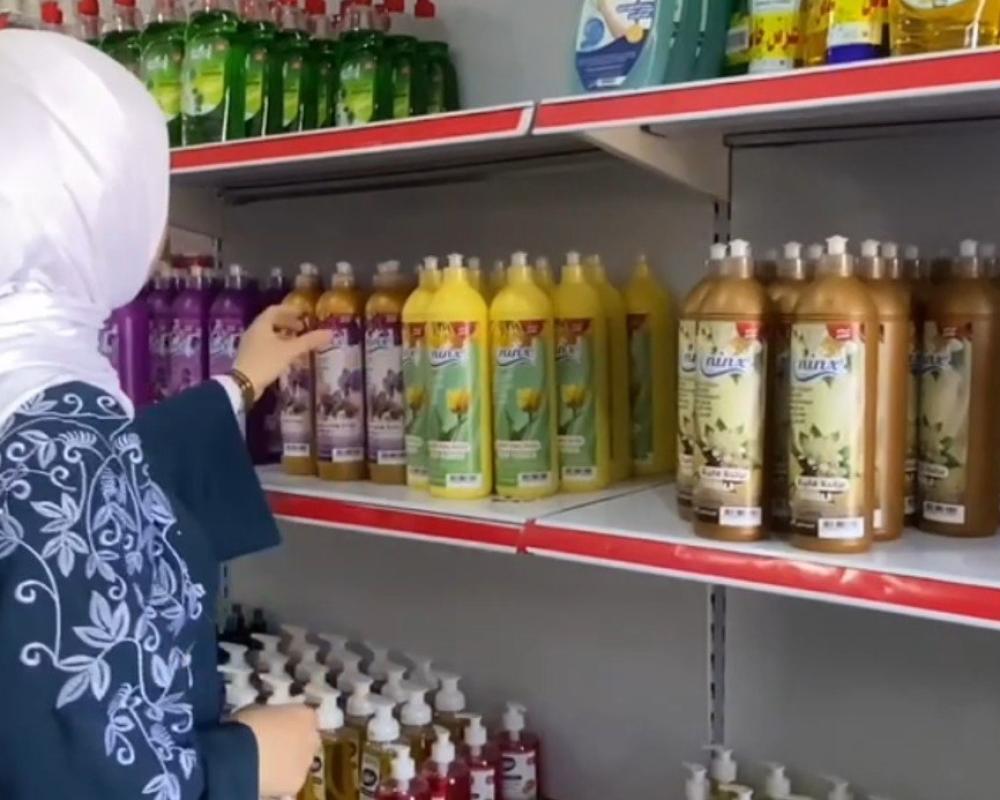
Jenin / PNN – Report by Yara Mansour | Edited by Mona Amarna -
In a time when Israeli aggression and restrictions continue to escalate across Palestinian territories, life refuses to come to a halt. Palestinian women persist—fighting with resilience and determination to thrive, assert their identities, and achieve national and personal accomplishments. Their goal: to offer locally made, high-quality products as alternatives to boycotted foreign goods.
Tamara Al-Omari, from the village of Faqqua in the Jenin governorate, is one such woman. As the founder of Ninex, a Palestinian cleaning product factory, Al-Umari represents a generation of pioneering Palestinian women entrepreneurs.
Tamara says the inspiration for her project was first conceived by her late father a decade ago. She took it upon herself to turn his vision into reality, launching Ninex step by step.
The journey began with a small online marketing page selling empty plastic containers used for hand-crafted cosmetics and cleaning products—a vital resource for small business owners working in what is known as the “handmade” or “handmade/home-based” sector.
From there, she began supplying intermediate ingredients for these small producers—materials such as white soap bases, Moroccan soap, cream bases, and transparent soaps. Customers would purchase these components from her, complete their manufacturing processes, and affix their own branded labels.
Eventually, the business evolved further. Ninex began producing customised cosmetic formulas for specific clients and private companies. These partners would then complete the product's final stages, branding it under their own names.
But Al-Omari didn’t stop there.
Driven by a larger vision, she transformed Ninex from a supporting role in others’ projects to a full-fledged manufacturer. After a decade of persistent effort, she officially established the Ninex cleaning product factory in her hometown of Faqqua.
Despite countless challenges, Tamara managed to navigate the bureaucratic and licensing processes required by Palestinian authorities. She was finally able to launch a factory that produces local cleaning products with a quality that rivals foreign alternatives—particularly those targeted by boycott campaigns.
Al-Omari, undeterred by the harsh Israeli occupation policies and military assault, remains determined to expand Ninex’s reach across all Palestinian cities, towns, and refugee camps. Her long-term goal is to enter international markets and showcase Palestinian-made alternatives globally.
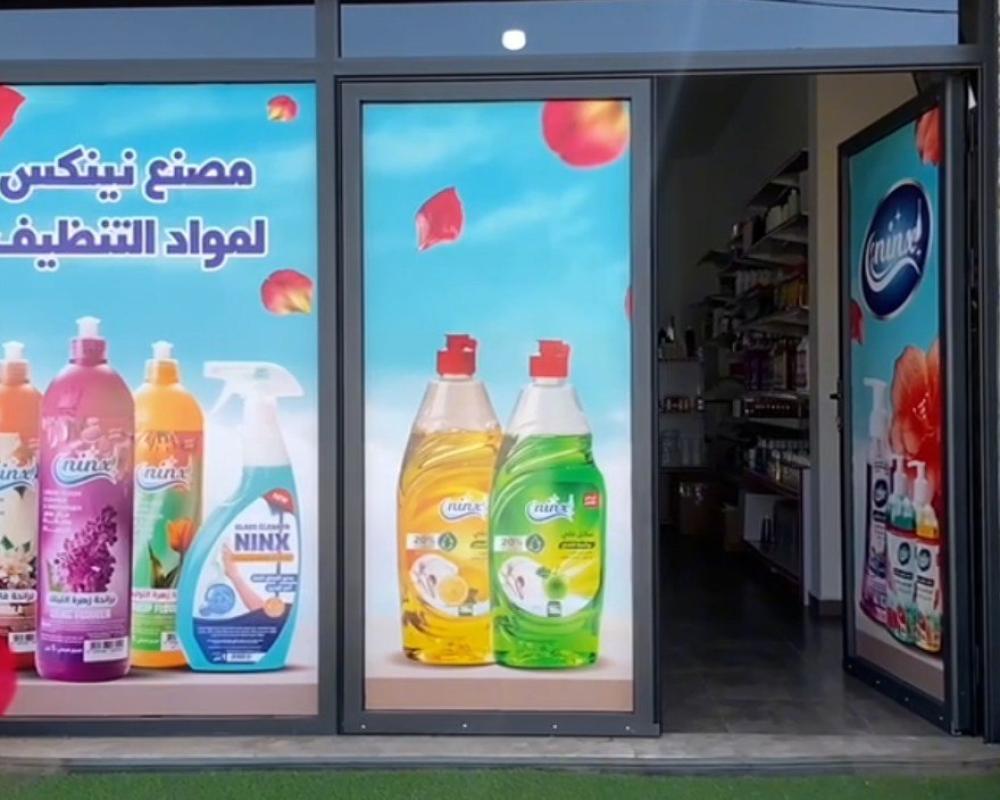
“I believe if you have an idea, you must pursue it and be willing to work hard to overcome the obstacles,” she says.
The Ninex factory is now equipped with modern mixing machines and automated packaging systems to ensure both quality and efficiency. Each product carries the signature of Palestinian women's labour and resilience—a symbol of endurance in the face of a war that targets land, trees, and people alike.
Tamara expresses hope that her products will serve as an effective alternative to Israeli goods and strengthen the culture of supporting Palestinian-made products.
Through innovation and national pride, she aims to promote economic resistance as part of the broader struggle for Palestinian self-determination.
This story was produced as part of the Qarib Programme, implemented by the French Media Development Agency (CFI) and funded by the French Development Agency (AFD).
